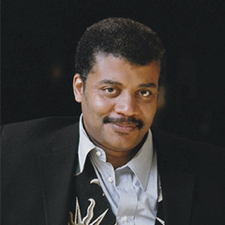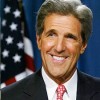Want to know what books Stephen D King recommends on their reading list? We've researched interviews, social media posts, podcasts, and articles to build a comprehensive list of Stephen D King's favorite book recommendations of all time.
1

Renowned moral philosopher Jonathan Glover confronts the brutal history of the twentieth century to unravel the mystery of why so many atrocities occurred. In a new preface, Glover brings the book through the post-September 11 era and into our own time—and asks whether humankind can "weaken the grip war has on us."
Praise for the first edition:
“It is hard to imagine a more important book. Glover makes an overwhelming case for the need to understand our own inhumanity, and reduce or eliminate the ways in which it can express itself—and he then begins the task... more Renowned moral philosopher Jonathan Glover confronts the brutal history of the twentieth century to unravel the mystery of why so many atrocities occurred. In a new preface, Glover brings the book through the post-September 11 era and into our own time—and asks whether humankind can "weaken the grip war has on us."
Praise for the first edition:
“It is hard to imagine a more important book. Glover makes an overwhelming case for the need to understand our own inhumanity, and reduce or eliminate the ways in which it can express itself—and he then begins the task himself. Humanity is an extraordinary achievement.”—Peter Singer, Princeton University
“This is an extraordinary book: brilliant, haunting and uniquely important. Almost 40 years ago a president read a best seller and avoided a holocaust. I like to think that some of the leaders and followers of tomorrow will read Humanity.”—Steven Pinker, New York Times Book Review less 
Stephen D KingHe takes a variety of different morally dubious events through the 20th century, and doesn’t ask the question was it right or wrong in terms of the consequence, but rather: did the actors involved in reaching the decision do so in a good moral sense or not? (Source)
See more recommendations for this book...
2

International trade has shaped the modern world, yet until now no single book has been available for both economists and general readers that traces the history of the international economy from its earliest beginnings to the present day. Power and Plenty fills this gap, providing the first full account of world trade and development over the course of the last millennium.
Ronald Findlay and Kevin O'Rourke examine the successive waves of globalization and deglobalization that have occurred during the past thousand years, looking closely at the technological and... more International trade has shaped the modern world, yet until now no single book has been available for both economists and general readers that traces the history of the international economy from its earliest beginnings to the present day. Power and Plenty fills this gap, providing the first full account of world trade and development over the course of the last millennium.
Ronald Findlay and Kevin O'Rourke examine the successive waves of globalization and deglobalization that have occurred during the past thousand years, looking closely at the technological and political causes behind these long-term trends. They show how the expansion and contraction of the world economy has been directly tied to the two-way interplay of trade and geopolitics, and how war and peace have been critical determinants of international trade over the very long run. The story they tell is sweeping in scope, one that links the emergence of the Western economies with economic and political developments throughout Eurasia centuries ago. Drawing extensively upon empirical evidence and informing their systematic analysis with insights from contemporary economic theory, Findlay and O'Rourke demonstrate the close interrelationships of trade and warfare, the mutual interdependence of the world's different regions, and the crucial role these factors have played in explaining modern economic growth.
Power and Plenty is a must-read for anyone seeking to understand the origins of today's international economy, the forces that continue to shape it, and the economic and political challenges confronting policymakers in the twenty-first century. less 
Dani RodrikThis is really a magisterial tour of the last thousand years of globalisation. (Source)

Stephen D KingWhat’s particularly good about this is the tremendous detail on the way in which different parts of the world used to trade with each other, and how it helps us to think about a world that wasn’t purely European, or European-plus-satellites focused. (Source)
See more recommendations for this book...
3

In his book, Smith fervently extolled the simple yet enlightened notion that individuals are fully capable of setting and regulating prices for their own goods and services. He argued passionately in favor of free trade, yet stood up for the little guy. The Wealth of Nations provided the first--and still the most eloquent--integrated description of the workings of a market economy. more In his book, Smith fervently extolled the simple yet enlightened notion that individuals are fully capable of setting and regulating prices for their own goods and services. He argued passionately in favor of free trade, yet stood up for the little guy. The Wealth of Nations provided the first--and still the most eloquent--integrated description of the workings of a market economy. less 
Barack ObamaObama, unsurprisingly, appears to be more drawn to stories sympathetic to the working classes than is McCain. Obama cites John Steinbeck’s “In Dubious Battle,” about a labor dispute; Robert Caro’s “Power Broker,” about Robert Moses; and Studs Terkel’s “Working.” But he also includes Adam Smith’s “Wealth of Nations” and “Theory of Moral Sentiments” on his list. (Source)

Neil deGrasse TysonWhich books should be read by every single intelligent person on planet? [...] The Wealth of Nations (Smith) [to learn that capitalism is an economy of greed, a force of nature unto itself]. If you read all of the above works you will glean profound insight into most of what has driven the history of the western world. (Source)
See more recommendations for this book...
4

John Steinbeck, Robert DeMott | 4.23
The Pulitzer Prize-winning epic of the Great Depression, a book that galvanized—and sometimes outraged—millions of readers.
First published in 1939, Steinbeck’s Pulitzer Prize-winning epic of the Great Depression chronicles the Dust Bowl migration of the 1930s and tells the story of one Oklahoma farm family, the Joads—driven from their homestead and forced to travel west to the promised land of California. Out of their trials and their repeated collisions against the hard realities of an America divided into Haves and Have-Nots evolves a drama that is intensely human yet majestic... more The Pulitzer Prize-winning epic of the Great Depression, a book that galvanized—and sometimes outraged—millions of readers.
First published in 1939, Steinbeck’s Pulitzer Prize-winning epic of the Great Depression chronicles the Dust Bowl migration of the 1930s and tells the story of one Oklahoma farm family, the Joads—driven from their homestead and forced to travel west to the promised land of California. Out of their trials and their repeated collisions against the hard realities of an America divided into Haves and Have-Nots evolves a drama that is intensely human yet majestic in its scale and moral vision, elemental yet plainspoken, tragic but ultimately stirring in its human dignity. A portrait of the conflict between the powerful and the powerless, of one man’s fierce reaction to injustice, and of one woman’s stoical strength, the novel captures the horrors of the Great Depression and probes into the very nature of equality and justice in America. At once a naturalistic epic, captivity narrative, road novel, and transcendental gospel, Steinbeck’s powerful landmark novel is perhaps the most American of American Classics. less 
Jonathan EvisonThis is the great American novel for me—the humanity, the landscapes, the progressive and political and social ethos of the novel, not to mention the amazing characters. Steinbeck is the American Dickens, at least in terms of social consciousness. (Source)

John KerryWhile there is a story that takes place between characters, the hardship and unfairness is a central element of the book. It shows how fiction can create progressive change as well. (Source)
See more recommendations for this book...
5

David S. Landes tells the long, fascinating story of wealth and power throughout the world: the creation of wealth, the paths of winners and losers, the rise and fall of nations. He studies history as a process, attempting to understand how the world's cultures lead to - or retard - economic and military success and material achievement. Countries of the West, Landes asserts, prospered early through the interplay of a vital, open society focused on work and knowledge, which led to increased productivity, the creation of new technologies, and the pursuit of change. Europe's key advantage lay... more David S. Landes tells the long, fascinating story of wealth and power throughout the world: the creation of wealth, the paths of winners and losers, the rise and fall of nations. He studies history as a process, attempting to understand how the world's cultures lead to - or retard - economic and military success and material achievement. Countries of the West, Landes asserts, prospered early through the interplay of a vital, open society focused on work and knowledge, which led to increased productivity, the creation of new technologies, and the pursuit of change. Europe's key advantage lay in invention and know-how, as applied in war, transportation, generation of power, and skill in metalwork. Even such now banal inventions as eyeglasses and the clock were, in their day, powerful levers that tipped the balance of world economic power. Today's new economic winners are following much the same roads to power, while the laggards have somehow failed to duplicate this crucial formula for success. The key to relieving much of the world's poverty lies in understanding the lessons history has to teach us - lessons uniquely imparted in this towering work of history. less 
John KayHe provides an explanation for why Western Europe was the cradle for modern economic growth and looks at the development of the institutions that made modern economic development possible. (Source)

Diane CoyleThe Wealth And Poverty of Nations is one of several really fantastic economic history books of recent times. (Source)

Sean TurnellIt’s the most erudite examination of what causes economic development and growth that’s been written in many decades. (Source)
See more recommendations for this book...
Don't have time to read Stephen D King's favorite books? Read Shortform summaries.
Shortform summaries help you learn 10x faster by:
- Being comprehensive: you learn the most important points in the book
- Cutting out the fluff: you focus your time on what's important to know
- Interactive exercises: apply the book's ideas to your own life with our educators' guidance.




